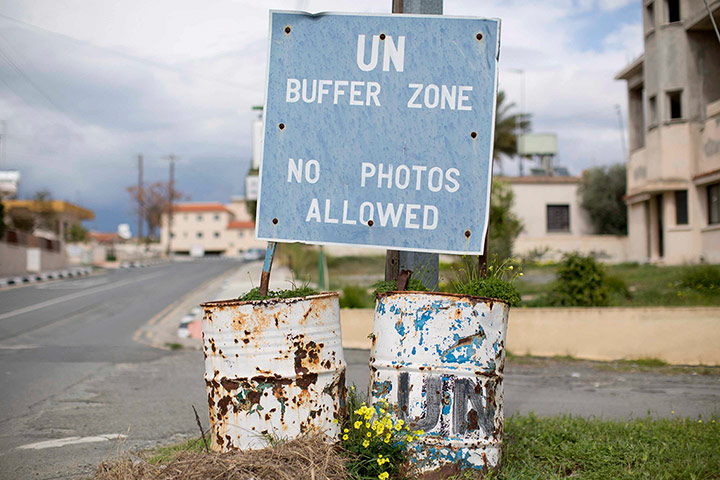By Kyle Herda
Impunity Watch Reporter, Europe
NICOSIA, Cyprus – Forty years ago today, a coup led by Greeks chased out President Archbishop Makarios. Less than a week after, Turkey invaded Cyprus and overthrew the coup in a bloody engagement. While Turkey eventually halted its advance, 35,000 Turkish troops still remain in northern Cyprus today.

Today, the northern one-third of Cyprus remains separate from the rest of the nation, separated by a buffer controlled by the United Nations. This northern section of the island self-identifies themselves as an independent nation, the Turkish Republic of Northern Cyprus. While Turkey also recognizes northern Cyprus as an independent nation, Turkey is alone in doing so. However, it remains unclear what exactly that region of the island is, as it acts as a de facto nation with its own government.
Over one-third of the Cypriots on the island are mainland Turks, which makes unification of the north and south even more difficult. Now, a group of Cypriots is taking action against Turkey in an attempt to push Turkey out of the north.
European Parliament member Costas Mavrides, representing his nation Cyprus, a European Union member nation, filed a war crimes complaint against Turkey. Tens of thousands of Turkish troops in northern Cyprus, A sizeable Turkish population in northern Cyprus, backed by tens of thousands of Turkish troops also stationed there, are increasing in numbers, a move that is making Cyprus feel threatened.
Along with Mavrides, a group called Cypriots Against Turkish War Crimes has taken part in filing the complaint against Turkey. This group has been backed by an Israeli-based rights organization called the Shurat HaDin Law Center.
The claim is that Turkey is pushing Turkish mainlanders to move to the island. Turkey is allegedly enticing Turkish settlers by providing job opportunities, financial aid, and giving homes and land to Turks who make the move. The impact of these moves could drastically increase the Turkish population, as has already been seen in the northern section of Cyprus where over one-third of the 300,000 population is people who came from Turkey.
Cyprus is afraid that the increase in the Turkish population on the northern section of the island could further push the northern part of Cyprus to breakaway from the rest of the island. The filed complaint in the International Criminal Court is an attempt by Cyprus to contain the situation and nip it in the bud before things escalate, especially in the wake of the recent quiet takeover of Crimea by Russia in a similar manner. Although it has been forty years now since the conflict began, it is clear that a solution is still far away.
For more information, please see:
Cyprus Mail – Congressmen urge Obama to enhance US support for Cyprus’ reunification 15 July 2014
Cyprus Mail – Forty years since the coup 15 July 2014
ABC News – Cypriots File War Crimes Complaint Against Turkey 14 July 2014
The Guardian – Cyprus divided: 40 years on, a family recalls how the island was torn apart 5 July 2014

